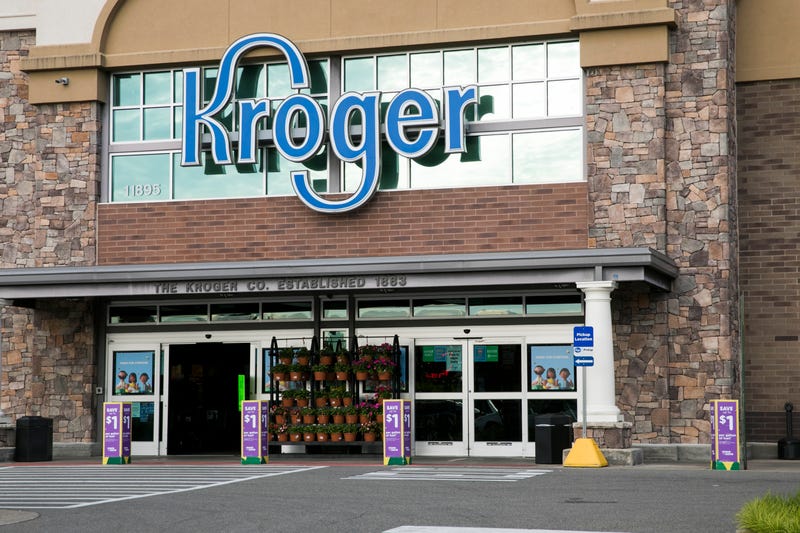
Grocery chain Kroger is facing a lawsuit over claims that some of its private-label products contain dangerously high levels of lead.
A lawsuit was filed against the company Monday in Los Angeles County's Superior Court on behalf of the Ecological Alliance, a California advocacy group.
"Kroger is betraying the American public by selling over a dozen products tainted with extraordinarily high amounts of lead," Vineet Dubey, the Los Angeles environmental attorney who filed the lawsuit, said in a statement.
According to the lawsuit, independent testing showed that 15 products sold under one of the store's private-label brands -- Kroger, Simple Truth and Private Selection -- contained lead content that exceeds California's daily maximum exposure level.
The worst offender was Kroger's Spinach With Bacon Salad Kit For One. The lawsuit claims one serving contained approximately 70.1 micrograms of lead, over 140 times greater than the amount allowed for adult consumption in a single day.
Several other products had lead levels over 10 times the allowed limit, according to the lawsuit, including:
• Kroger Single Serving Canned Sweet Peas & Carrots -- 66 times
• Simple Truth Organic Yellow Cling Diced Peaches & Pears -- 22 times
• Kroger Crumbdillyicious Graham Crackers -- 22 times
• Simple Truth Organic Frozen Berry Medley -- 16 times
• Kroger Cinnamon Raisin Pre-Sliced Bagels -- 13 times
• Simple Truth Organic Whole Wheat Spaghetti -- 13 times
Other items that returned high test results for lead include Simple Truth Organic Raisin Bran, Simple Truth Organic Cinnamon Breakfast Cookies, Private Selection Frozen Whole Strawberries, Kroger Canned Diced Jalapeno Peppers, Kroger Canned Sliced Beets, Kroger Frozen Italian Style Green Beans, Kroger Cinnapuff Breakfast Cereal and Kroger Strawberry Applesauce, according to the lawsuit.
The claim notes that exposure to lead can cause a range of health effects, including behavioral problems and learning disabilities in children, and high blood pressure, kidney failure and brain damage in adults.
Ecological Alliance notified Kroger, as well as California's Attorney General, of its lab results four times between June and October 2021, but no action was taken, according to the lawsuit.
"Kroger has not lived up to its end of the deal with consumers by ensuring that it is selling non-toxic foods," Dubey said. "It should immediately remove these items from its shelves and put into place new quality controls so that Americans are never poisoned by lead from another Kroger food item."
Kroger has not responded to the lawsuit, which seeks to have the items removed from shelves. The lawsuit is also seeking fines against Kroger up to $2,500 per day for each violation.
Kroger operates a total of 2,922 grocery retail stores in the U.S. under its own name and various regional chains, including Harris Teeter, Ralphs, Smith's Food and Drug, Fred Meyer, QFC, King Soopers and Mariano's.
The Cincinnati-based company is the largest supermarket chain in the U.S. by revenue (sales topped $131 billion in 2020) and the second-largest general retailer behind Walmart, according to the lawsuit.


